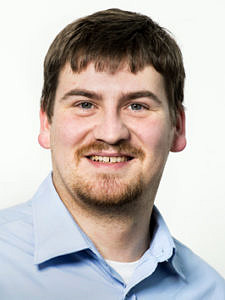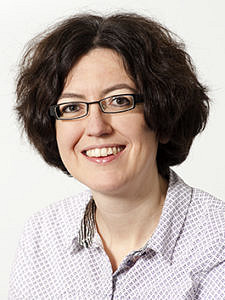Infektionsforschung und Immunologie
A77: Aline Bozec, Medizinische Klinik 3
HIF in B Zellen reguliert den Knochenabbau
Laufzeit: 16.12.2020 – 15.12.2023
B Zellen sekretieren RankL, das wichtigste Zytokin in der Regulation der Osteoklasten Differenzierung. Die Regulierung der Expression ist allerdings immer noch unklar. B Zellen siedeln sich in der Knochenmarksnische, einem Bereich mit niedrigem O2 Gehalt an. Dabei adaptieren sie sich durch Expression von HIFs an ihre Umgebung. Ich vermute daher, dass die HIF Expression in B Zellen die Entstehung von Osteoporose beeinflussen kann.
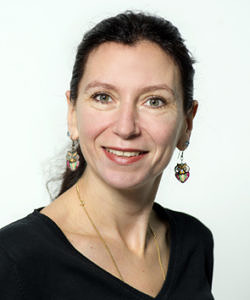 |
| Projektleiterin Prof. Dr. Aline Bozec Telefon: 09131 85-29032 E-Mail: aline.bozec@uk-erlangen.de |
A78: Mircea Chiriac | Markus Neurath, Medizinische Klinik 1
Die Smurf2-IFN Axis bei CED und mukosaler Heilung
Laufzeit: 01.01.2021 – 31.12.2023
Um die Rolle der Ubiquitinierung von Typ I-Interferon bei der Pathogenese entzündlicher Darmerkrankungen zu verstehen, werden wir DSS-Colitis in zwei neue konditionale-knockout Mausstämmen (Stat2 und Smurf2) induzieren. Durch CRISPR/Cas, dreidimensionale Organoide, gekoppelt mit Nanostring- und RNA-Seq/GO-Analyse erhoffen wir uns die molekularen Mechanismen zu verstehen, die den DSS-Befunden zugrunde liegen. Die Daten werden anhand von Proben von IBD-Patienten und -Kontrollen validiert.
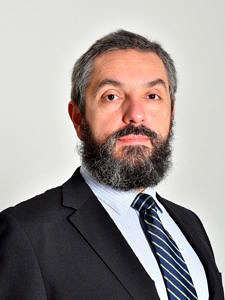 |
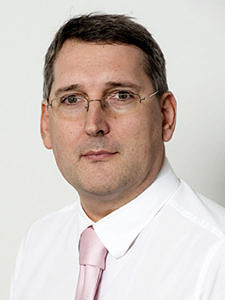 |
| Projektleiter Dr. Dr. Mircea Chiriac Telefon: 09131 85-35899 E-Mail: mircea.chiriac@uk-erlangen.de |
Projektleiter Prof. Dr. Markus Neurath Telefon: 09131 85-35204 E-Mail: markus.neurath@uk-erlangen.de |
A87: Christian Lehmann, Hautklinik |
Ulrike Schleicher, Mikrobiologisches Institut
DCs und natürliche AKs bei Leishmanieninfektionen
Laufzeit: 01.07.2020 bis 30.11.2023
Dendritische Zellen (DCs) sind unverzichtbar für die Pathogenabwehr. Darüber hinaus fördern natürliche Antikörper (nAbs) schnelle zielgerichtete Reaktionen. Leishmaniose als wichtige Tropenkrankheit hat verschiedene klinische Ausprägungen. Dennoch sind die ersten Ereignisse bei der Infektion und der resultierenden NK/T-Zellantwort durch DCs/nAbs nicht komplett verstanden. Wir wollen nun auf Einzelzellebene wichtige Frühfaktoren ermitteln, die den klinischen Verlauf einer Leishmaniose bestimmen.
A93: Christoph Becker, Medizinische Klinik 1
Citrat im Darmepithel
Laufzeit: 01.07.2023 – 31.12.2025
Wir haben das Enzym ATP-Zitrat-Lyase (ACLY) als immunmetabolischen Regulator von Entzündungsprozessen im Darm identifiziert. Wir stellen daher die Hypothese auf, dass eine verminderte ACLY-Expression im Darmepithel die Pathogenese chronisch entzündlicher Darmerkrankungen fördert. Um unsere Hypothese zu überprüfen, soll die Regulation, die molekulare Wirkungsweise und die Funktion von Acly im gesunden Darm und bei Darmentzündung mit Hilfe von neu erzeugten Knockout-Mäusen untersucht werden.
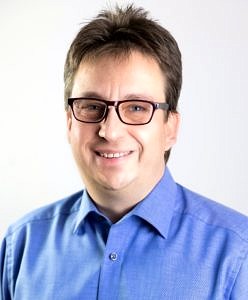 |
| Projektleiter Prof. Dr. Christoph Becker E-Mail: christoph.becker@uk-erlangen.de |
A94: Armin Ensser, Virologisches Institut – Klinische und Molekulare Virologie
SARS-CoV-2 Wirtsanpassung
Laufzeit: 01.07.2023 – 31.12.2025
Die kontinuierliche Anpassung der SARS-CoV-2 Replikationsmaschinerie und die Folgen von Mutationen in Nichtstrukturproteinen (Nsp) für die Virus-Wirt Interaktion bei neuen Varianten müssen berücksichtigt werden. Mit SARS-CoV-2-Markerviren soll die Rolle von Nsp-Mutationen der Virusvarianten in verschiedenen Kultursystemen, bei der viralen Replikation und beim Entkommen aus der zellulären Restriktion untersucht werden, wobei der Schwerpunkt auf deren nicht Spike-bezogenen Phänotyp liegt.
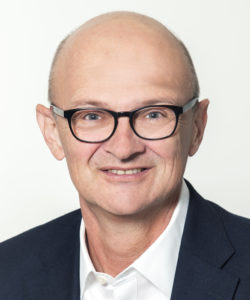 |
| Projektleiter Prof. Dr. Armin Ensser E-Mail: armin.ensser@fau.de |
A95: Thomas Gramberg, Virologisches Institut – Klinische und Molekulare Virologie
Virale RNA Methylierung blockiert MDA5 Erkennung
Laufzeit: 01.01.2023 – 30.06.2025
Die 2′-O-Methylierung von mRNA durch zelluläre Methyltransferasen (MTasen) ermöglicht die Unterscheidung zwischen selbst und fremd. Wir konnten zeigen, dass SARS-CoV-2, dem die virale MTase Nsp16 fehlt, eine verstärkte, MDA5-abhängige native Immunantwort auslöst. Daher werden wir analysieren, wie Nsp16 der Erkennung durch das native Immunsystem entgegenwirkt, und die Hypothese testen, ob die 2′-O-Methylierung viraler RNA vor der Erkennung durch den Mustererkennungsrezeptor MDA5 schützt.
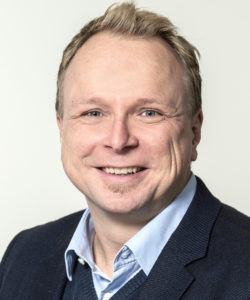 |
| Projektleiter Prof. Dr. Thomas Gramberg E-Mail: thomas.gramberg@fau.de |
A96: Kai Hildner, Medizinische Klinik 1 | Thomas Winkler, Department Biologie – Lehrstuhl für Genetik
Immun-/ Epithel-Zellinteraktion bei CMV im Darm
Für immunsupprimierte Patienten stellt eine Reaktivierung einer latenten Zytomegalovirusinfektion im Darm eine lebensbedohliche Komplikation dar. Zugrundeliegende zelluläre und molekulare Mechanismen sind dabei noch unvollständig verstanden und zielgerichtete Therapien fehlen. In unserem Antrag möchten wir mit Hilfe neu etablierter ex vivo Organoid-Ko-Kultursystemen, die mit innovativen genetischen Modellen kombiniert werden, die Immun-/ Darmepithel-Zellinteraktion bei CMV Infektion untersuchen.
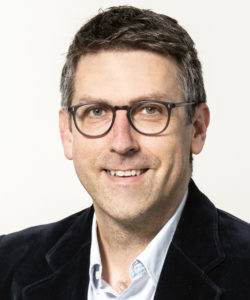 |
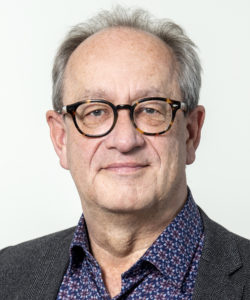 |
| Projektleiter Prof. Dr. Kai Hildner E-Mail: kai.hildner@uk-erlangen.de |
Projektleiter Prof. Dr. Thomas Winkler E-Mail: thomas.winkler@fau.de |
A97: Clemens Neufert, Medizinische Klinik 1
STAT3 in IMCs bei mukosaler Heilung und CED
Laufzeit: 01.07.2023 – 31.12.2025
Die Funktion von intestinalen mesenchymalen Zellen (IMCs) bei chronisch entzündlichen Darmerkrankungen (CED) ist ungeklärt. Das Projekt hat zum Ziel, die Bedeutung der STAT3 Aktivierung in IMCs bei mukosaler Heilung im Darm umfassend zu charakterisieren und funktionell zu analysieren. Hierfür sind u.a. die Verwendung von etablierten in vivo Modellsystemen sowie humanen Gewebsproben geplant. Perspektivisch sollen Grundlagen für eine Verbesserung der medizinischen Therapie von CED gelegt werden.
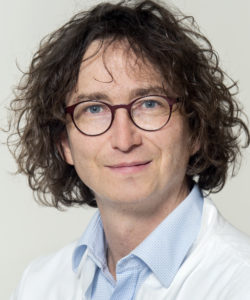 |
| Projektleiter Prof. Dr. Clemens Neufert E-Mail: clemens.neufert@uk-erlangen.de |
A98: Kilian Schober, Mikrobiologisches Institut
RA-T
Laufzeit: 16.03.2023 – 15.09.2025
Autoreaktive T-Zellen könnten eine Schlüsselrolle bei der Entstehung der rheumatoiden Arthritis (RA) spielen, aber ihre Spezifität und Beteiligung bei RA sind immer noch unklar. In diesem Projekt werden wir autoreaktive T-Zellen, ihre Rezeptoren und Antigene bei RA-Patienten identifizieren und die Dynamik der T-Zell-Reaktion bei verschiedenen Stadien der RA untersuchen. Dies wird wichtige Einblicke in die Pathogenese der RA liefern und die Grundlage für neue Immuntherapien bilden.
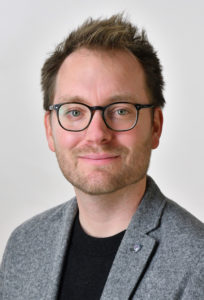 |
| Projektleiter PD Dr. Kilian Schober E-Mail: kilian.schober@uk-erlangen.de |
A99: Ulrike Steffen, Medizinische Klinik 3
Mechanismen des kortikalen Knochenumbaus
Laufzeit: 01.07.2023 – 31.12.2025
Ständiger Knochenumbau beugt Frakturen vor. Bei Knochen mit dickem Kortex fanden wir, im Gegensatz zu bestehenden Modellen, einen auf endostaler Knochenbildung und periostaler Resorption basierenden Umbau. In diesem Projekt werden wir diesen Prozess und seine Abhängigkeit von Alter, mechanischer Belastung, Osteoklasten- und Osteozytenaktivität charakterisieren, um die Anfälligkeit bestimmter Knochenstellen für Frakturen zu erklären und neue Strategien gegen Insuffizienzfrakturen zu entwickeln.
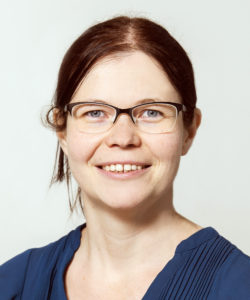 |
| Projektleiterin Dr. Ulrike Steffen E-Mail: ulrike.steffen@uk-erlangen.de |
A100: Alexander Steinkasserer, Immunmodulatorische Abteilung
sCD83 induziert Wundheilung
Laufzeit: 01.07.2023 – 31.12.2025
Für die Behandlung von chronischen Wunden werden dringend neue Therapien benötigt. Unsere Vorarbeiten zeigen, dass die systemische sowie topische sCD83-Applikation die Wundheilung beschleunigt. Zelluläre Analysen ergaben eine vermehrte Anzahl von pro-resolving Makrophagen, welche bekannter weise die Wundheilung verbessern. Diese Befunde untermauern das Potential von sCD83 für die Behandlung von chronischen Wunden. Im Rahmen des Projekts sollen die zugrundeliegenden Mechanismen aufgeklärt werden.
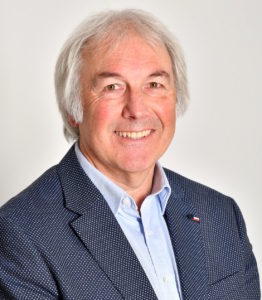 |
| Projektleiter Prof. Dr. Alexander Steinkasserer E-Mail: alexander.steinkasserer@uk-erlangen.de |
A101: Matthias Tenbusch, Virologisches Institut
IgG4 Antikörperantwort nach SARS-CoV-2 RNA Impfung
Laufzeit: 01.04.2023 – 30.09.2025
Wir haben atypische, antivirale IgG4-Antworten nach Impfung mit einem SARS-CoV-2-mRNA-Vakzin detektiert. Da IgG4-Antikörper als anti-inflammatorisch und eher tolerogen gelten, soll der Einfluss dieser Art von Antikörperreaktion auf die Verhinderung von Virusinfektionen oder Erkrankungen untersucht werden. Es wird analysiert, ob Reexpositionen in Form einer Infektion oder Booster-Impfung die SARS-CoV-2-Antwort weiter in Richtung IgG4 verschiebt und welche Mechanismen dem zugrunde liegen könnten.
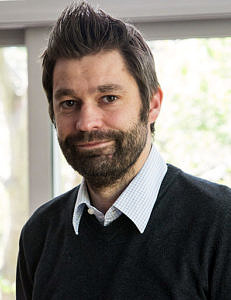 |
| Projektleiter Prof. Dr. Matthias Tenbusch E-Mail: matthias.tenbusch@uk-erlangen.de |
A102: Maximilian Waldner, Medizinische Klinik 1 | Jochen Guck, Department Physik – Lehrstuhl für Biologische Optomechanik
Mechanik angeborener Immunzellen bei der Colitis
Laufzeit: 01.07.2023 – 31.12.2025
Die Migration von Immunzellen spielt eine wichtige Rolle bei der Pathogenese der Colitis ulcerosa (CU). Basierend auf unseren Vordaten stellen wir die Hypothese auf, dass Immunzellmechanik eine wichtige Rolle bei diesem Prozess spielt. Entsprechend werden wir in unserem Projekt Mechanismen untersuchen, die zu einer Veränderung der Immunzellmechanik führen. Außerdem werden wir die funktionelle Relevanz sowie eine mögliche therapeutische Beeinflussung der Immunzellmechanik bei CU untersuchen.
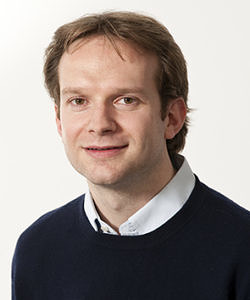 |
 |
| Projektleiter Prof. Dr. Maximilian Waldner E-Mail: maximilian.waldner@uk-erlangen.de |
Projektleiter Prof. Dr. Jochen Guck E-Mail: jochen.guck@mpl.mpg.de |
A103: Benno Weigmann, Medizinische Klinik 1
Sekretorische IgA Moleküle bei der Darmimmunität
Laufzeit: 01.07.2023 – 31.12.2025
Darmerkrankungen (CED) sind chronische Entzündungen des Magen-Darm-Trakts. Sekretorische Antikörper (SIgA) werden von Schleimhautoberflächen produziert und sind intestinale Abwehr. Das Projekt möchte, die Rolle der SIgA bei dem Aufnahme/Rücktransportprozess am Endothel aufklären. Weiterhin soll eine Analyse zu den SIgA-selektionierten Bakterienstämme im Darm durchgeführt werden und damit sollen neue Ziele für eine SIgA-vermittelten therapeutischen Ansatz in der Therapie gefunden werden.
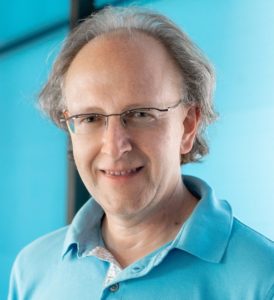 |
| Projektleiter PD Dr. Benno Weigmann E-Mail: benno.weigmann@uk-erlangen.de |
A104: Sebastian Zundler, Medizinische Klinik 1 | Stefan Uderhardt, Medizinische Klinik 3
Mechanik bei T-Zell-Auswanderung im Darm
Die in vivo Zellwanderung von T-Zellen bei CED ist nach wie vor nicht gut verstanden. Unsere vorläufigen Daten zeigen, dass mechanische Eigenschaften die Motilität von T-Zellen im Darm regulieren. Daher wollen wir das Zusammenspiel intestinaler T-Zell-Mechanik und -Wanderung in einem gemeinsamen Projekt untersuchen, das die Expertise zweier clinician scientists in Zellwanderung und Bildgebung kombiniert. Wir hoffen, so neue Ziele für die organspezifische Therapie von CED zu identifizieren.
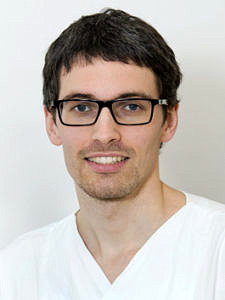 |
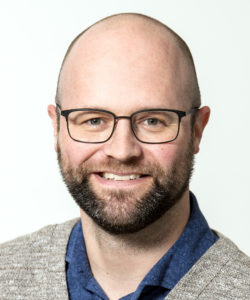 |
| Projektleiter Prof. Dr. Dr. Sebastian Zundler E-Mail: sebastian.zundler@uk-erlangen.de |
Projektleiter Prof. Dr. Stefan Uderhardt E-Mail: stefan.uderhardt@uk-erlangen.de |

